1. You Need a License for Owning a Kangaroo in Nevada
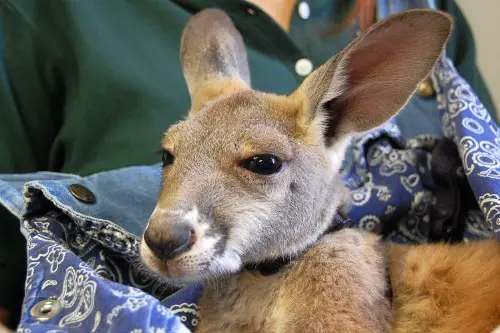
Kangaroos are adorable, and it’s understandable why some might want one as a pet, but in Nevada, you can’t just go around adopting one, according to the Animal Legal & Historical Center. Owning a kangaroo requires a special permit, and the state has specific guidelines to regulate their care and living conditions. Since kangaroos are wild animals with complex needs, they don’t typically thrive in suburban backyards without proper care. This is why the state has made sure that those who want to own one are fully prepared to meet its requirements.
The permit process includes inspections of the living environment, ensuring that the kangaroo will have adequate space to roam and proper veterinary care. This rule helps ensure that animals are not kept in unsafe or unhealthy conditions, which can often happen when people impulsively decide to own a wild animal. It’s important to remember that having a kangaroo isn’t like owning a traditional pet—it comes with responsibilities that must be taken seriously. If you think you might want one, make sure you’re ready for the challenge.
2. You Can’t Own a Hedgehog in California
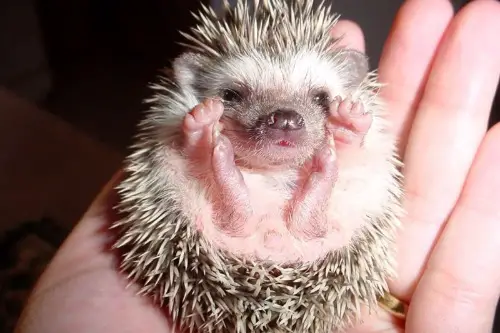
In California, owning a hedgehog as a pet is illegal due to the state’s strict regulations on non-native species, according to Sacramento Bee. The state is particularly concerned with protecting local wildlife and ecosystems from animals that could potentially become invasive. Hedgehogs are classified as “restricted species,” and the laws are meant to prevent the introduction of animals that might pose environmental risks. Even though hedgehogs are harmless and popular as pets in many other states, California prefers to play it safe.
On top of that, this law also extends to other small mammals like African rodents and certain reptiles. If you happen to live in California and are really set on having a hedgehog, you’ll have to find a way to move to another state where they’re legal. This can be a bit of a hassle, but it’s just part of California’s efforts to keep its ecosystem safe. So, if you were dreaming of having a prickly little buddy, you’ll need to adjust your plans.
3. No Pet Tigers in New York City
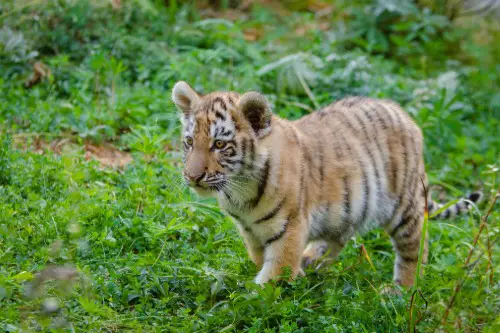
New York City is known for its strict pet ownership regulations, and one of the most unusual rules is the prohibition of owning tigers, according to NYC.gov. While this might seem obvious, it’s surprising how many people have attempted to keep large exotic cats in urban environments. The city’s law focuses on public safety, as well as ensuring that such animals are treated with proper care, which can be difficult in an apartment setting. There are strict laws on wild animals, particularly when it comes to the potential danger they can pose in a densely populated area.
Additionally, the city’s restrictions also apply to many other big cats like lions, leopards, and cougars. Even if you’re willing to provide a large, customized space for the animal, NYC doesn’t make exceptions for those who want to own these types of exotic pets. This is also a public health issue, as diseases from wild animals can spread more easily in close quarters. So while you may dream of a tiger in your Manhattan apartment, you’ll have to look elsewhere.
4. You Can’t Own a Sloth in Georgia

Sloths are known for their slow-moving charm, but in Georgia, owning one as a pet is illegal, according to Hasner Law PC. While sloths might seem like low-maintenance pets, they require very specific diets and environments, which is why the state has laws in place to prevent their careless ownership. These unique creatures are not suited for the average home, and keeping them could lead to both health problems for the sloth and potential danger to people. The law helps ensure that exotic animals like sloths are only kept by those with the proper knowledge and resources.
In Georgia, the idea is to make sure sloths are treated with the care they deserve and not just kept as novelty pets. They need specific habitats and should be able to move freely—something that’s often hard to provide in a typical home. So, if you’ve got your heart set on a sloth, you might need to relocate or get ready to apply for that permit. It’s all about ensuring the welfare of these fascinating animals.
5. You Can’t Own a Ferret in California
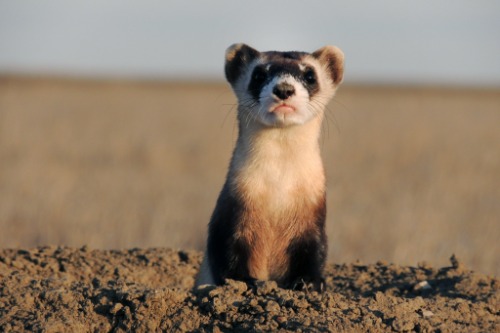
In California, owning a ferret is illegal, and it’s another example of the state’s wildlife protection efforts, Los Angeles Times reports. Ferrets are considered non-native species, and the concern is that if they were to escape into the wild, they could pose a threat to local ecosystems. The law aims to keep California free of potentially invasive species that could disrupt the balance of local wildlife. Ferrets are known to be excellent escape artists, which only increases the risk of them getting loose and creating problems.
Additionally, while ferrets are legal in many other states, California’s strict regulations also apply to other small, domestic pets that are considered invasive. The state has a long history of environmental conservation, and these laws help protect the unique habitats and wildlife found there. So, if you’re a California resident hoping to own a ferret, you’ll need to find another pet or head to a more permissive state.
6. You Can’t Have a Pet Alligator in Alaska

While it might be hard to imagine anyone trying to keep an alligator as a pet in Alaska, the state’s laws do make it clear that it’s not allowed. The cold climate and lack of appropriate habitats make it impossible for alligators to live comfortably, and the state’s wildlife authorities have banned them to protect both the reptiles and residents. This regulation is particularly focused on ensuring that alligators aren’t imported and released into the wild, where they could disrupt the local ecosystem.
In addition to alligators, many other large reptiles, such as crocodiles, are also banned in the state. These creatures are not just exotic—they’re potentially dangerous, and Alaska’s laws aim to keep both the animals and people safe. While this might seem like an obvious regulation, it’s a great reminder of how important it is to consider the environment and natural needs of exotic pets. For Alaskans hoping for an unconventional pet, an alligator is definitely off the table.
7. You Can’t Own a Capuchin Monkey in Nevada
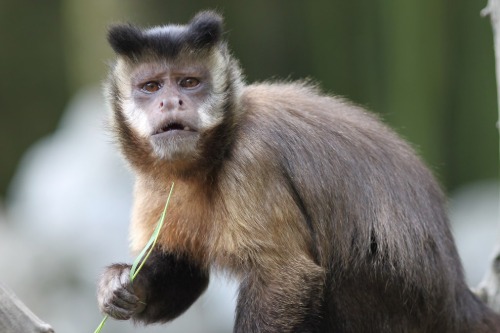
Capuchin monkeys are often seen in movies and have gained popularity as exotic pets, but Nevada has specific laws against owning them. The reasoning behind this is tied to both public safety and animal welfare concerns, as these monkeys can become aggressive if not raised correctly. They are social animals, so keeping them in isolation without other capuchins can lead to behavioral issues. Nevada has regulations to ensure that these primates are not kept in captivity unless in sanctuaries or specialized settings.
Additionally, Capuchins are highly intelligent, and without proper stimulation, they can become destructive or even dangerous. This law prevents people from impulsively getting one as a pet without fully understanding their complex needs. People interested in owning these monkeys need to demonstrate that they have both the time and resources to care for them properly. So, while they may be cute, owning a Capuchin in Nevada is no easy task.
8. You Can’t Own a Skunk in Oregon
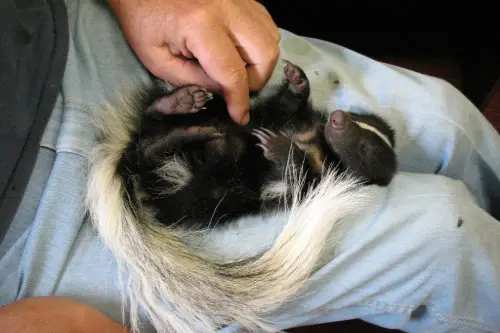
Skunks are often loved for their quirky behavior and unique appearance, but in Oregon, owning one as a pet is illegal without a special permit. The reason for this law is primarily due to concerns about rabies and other diseases that skunks can carry. Though some may think they can be kept as pets if they’re de-scented, the risk of disease transmission is still a concern. Skunks are also incredibly territorial, and their natural instincts can be difficult to manage in a household environment.
In Oregon, keeping a skunk could also result in environmental issues if it were to escape and breed with wild skunks, potentially introducing new diseases into the wild population. Additionally, there are animal welfare concerns regarding whether skunks can truly thrive in a domestic environment, considering their wild nature. To own one legally in Oregon, you would need to apply for a wildlife rehabilitation permit or a special license, which requires proving you have the knowledge to care for the animal properly. If you’re thinking about getting a skunk, it’s important to weigh both the legal and practical challenges.
9. You Can’t Keep a Monkey as a Pet in Washington
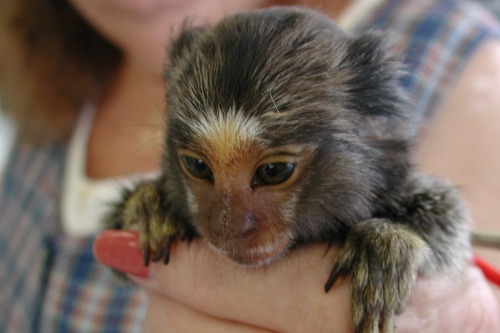
While monkeys can be appealing with their playful personalities and intelligence, Washington state has clear rules against owning one as a pet. These rules stem from concerns over animal welfare and the safety of the public, as monkeys can carry diseases like hepatitis, tuberculosis, and even HIV. Additionally, the state believes that keeping monkeys in private homes doesn’t provide them with the socialization or stimulation they need, often leading to health and behavioral problems. Monkeys, particularly in urban environments, are prone to aggression, especially if they feel threatened or isolated.
Washington’s law is designed to ensure that primates are only kept in appropriate environments, such as zoos, research facilities, or sanctuaries. The state recognizes that keeping a monkey as a pet can lead to both the animal’s suffering and potential harm to owners or others. If you really want a monkey, you’d need to get approval from the state and show that you can provide for its specific needs—something that’s much more complex than just feeding and grooming. This helps protect both the animal’s welfare and your own safety in the long run.
10. You Can’t Own a Cheetah in Minnesota
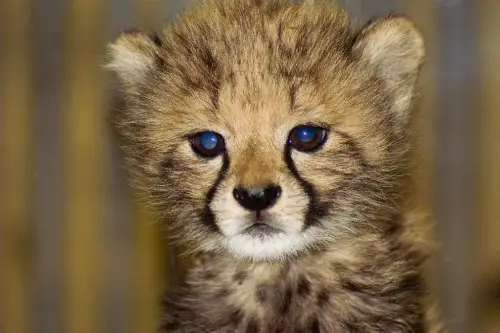
Owning a cheetah as a pet sounds like an incredible idea for any wildlife lover, but in Minnesota, it’s strictly prohibited unless you meet specific criteria. The state has stringent regulations regarding exotic pets, and large wild cats like cheetahs are seen as dangerous due to their size, strength, and unpredictable nature. Though cheetahs are not typically aggressive, they can be dangerous if not raised in the right conditions or if they feel threatened. Minnesota’s laws aim to protect the safety of both the animal and the public from potentially harmful situations.
On top of safety concerns, there are serious animal welfare issues at play. Cheetahs require vast amounts of space to roam and hunt, which makes keeping them in captivity incredibly difficult. The state’s regulations require that anyone wishing to own a cheetah must prove they can provide an environment that supports its complex needs, something that most private owners cannot do. So while you might dream of having a cheetah as a companion, you’re going to have to settle for something a little less exotic in Minnesota.
11. You Can’t Own a Red-Eared Slider Turtle in New York
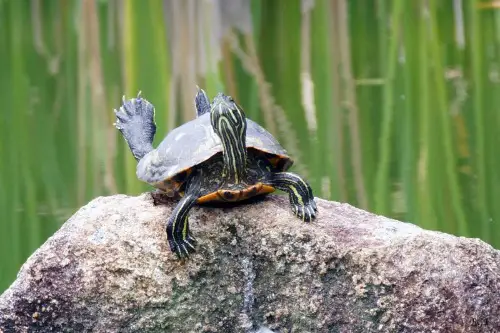
While turtles can be a great pet for many people, owning a red-eared slider in New York is prohibited. These turtles are one of the most commonly kept exotic pets in the U.S., but they are banned in New York because they’re considered an invasive species. Red-eared sliders have become a significant problem in many areas of the state, where they’ve been released into the wild, disrupting local ecosystems. The state’s Department of Environmental Conservation has enacted these rules to protect local wildlife from competition and disease brought by non-native species.
If you own a red-eared slider and live in New York, you might have to find an alternative home for the pet, as keeping them in the state could result in hefty fines. New York’s ban aims to prevent further environmental harm and ensure that local species can thrive. Though the pet trade might make these turtles seem like easy pets, the reality is that they require special care and attention. By enforcing this law, New York is hoping to curb the impact these turtles have on its environment and wildlife.
12. You Can’t Own a Wolf in Colorado
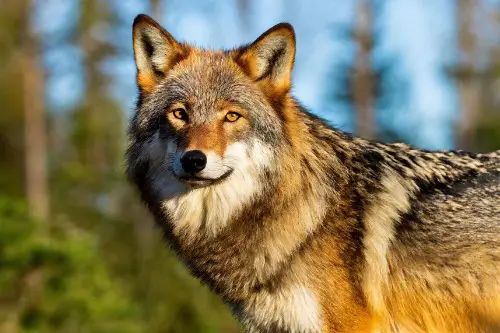
In Colorado, owning a wolf as a pet is illegal, and this rule applies to both purebred wolves and wolf hybrids. Wolves, by nature, are wild animals and require specific diets, living conditions, and social structures to thrive. The state’s wildlife regulations are designed to ensure that wild animals are not kept in environments where they could become stressed or unhealthy. This law helps to prevent people from attempting to domesticate wolves, which could lead to dangerous situations for both the animal and the owner.
The concerns with keeping a wolf in a domestic setting go beyond the obvious issues of safety—they also include the potential for the animal to develop behavioral problems. Wolves are pack animals and thrive in the wild with other wolves, making it difficult for them to adjust to life in a home. Moreover, they may have instincts that make them difficult to control, posing a risk to pets, livestock, or even people in the area. Colorado’s regulations aim to protect these majestic animals while also safeguarding public safety.


